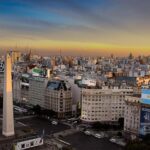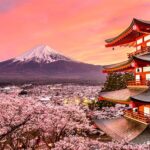Brazil, with its vibrant culture, breathtaking landscapes, and Afro-Brazilian heritage, has become an increasingly popular destination for African travelers. Whether exploring the bustling streets of São Paulo, dancing through the rhythms of Rio de Janeiro, or tracing historical ties in Salvador, Brazil offers a deeply immersive travel experience. However, before packing a suitcase, African nationals must navigate Brazil’s tourist visa requirements.
Visa Requirements Overview
Brazil does not offer visa-free access to most African countries, which means travelers typically must apply for a short-stay tourist visa (VIVIS). This visa allows for tourism, visiting relatives or friends, and participation in recreational or cultural activities, with a stay limit of up to 90 days.
The basic requirements often include:
-
A valid passport (with at least 6 months validity from the date of entry)
-
Completed visa application form
-
Recent passport-size photographs
-
Proof of travel itinerary (flight bookings, accommodation)
-
Proof of financial means (bank statements or sponsorship letters)
-
Travel insurance
-
Visa fee payment
Each Brazilian consulate may have slight variations in requirements, so it’s crucial for travelers to check the specific procedures for their country of residence.
If you need an explanation on writing your CV, Cover Letter and Email Template or help applying speak to Happy Face
Application Process
The tourist visa application must be submitted to the Brazilian consulate or embassy in the applicant’s home country or designated jurisdiction. Many embassies now use an online portal called e-consular, where applicants begin the process by uploading required documents, scheduling interviews (if applicable), and tracking application status.
In some countries, visa processing can take 5 to 15 business days, though it’s advisable to apply at least a month in advance to account for any delays or additional documentation requests.
Special Considerations for African Travelers
Brazil maintains diplomatic relationships with many African nations and, in recent years, has aimed to strengthen cultural and economic ties across the South Atlantic. However, access to consular services can vary greatly. In countries with limited Brazilian diplomatic presence, applicants may need to submit documents through third-party visa processing centers or travel to a neighboring country for biometric collection or interviews.
Additionally, African travelers may occasionally face heightened scrutiny, including requests for more extensive documentation on financial resources or ties to the home country. While this is not unique to Brazil, it underscores the importance of a well-prepared and transparent application.
If you need an explanation on writing your CV, Cover Letter and Email Template or help applying speak to Happy Face
Cultural Connections and Tourism Appeal
Brazil’s appeal for African travelers goes beyond sightseeing. Cities like Salvador, often called the “Black Rome,” offer deep historical and cultural connections to West Africa, particularly Yoruba and Bantu traditions. Candomblé temples, Afro-Brazilian cuisine, capoeira circles, and heritage museums create a sense of familiarity and shared history.
Many African visitors find Brazil both exotic and resonant—rich with opportunity for cultural exchange, business exploration, and artistic collaboration. These shared roots have encouraged the development of Afro-diasporic tourism, where travelers seek destinations that reflect their cultural identity.








